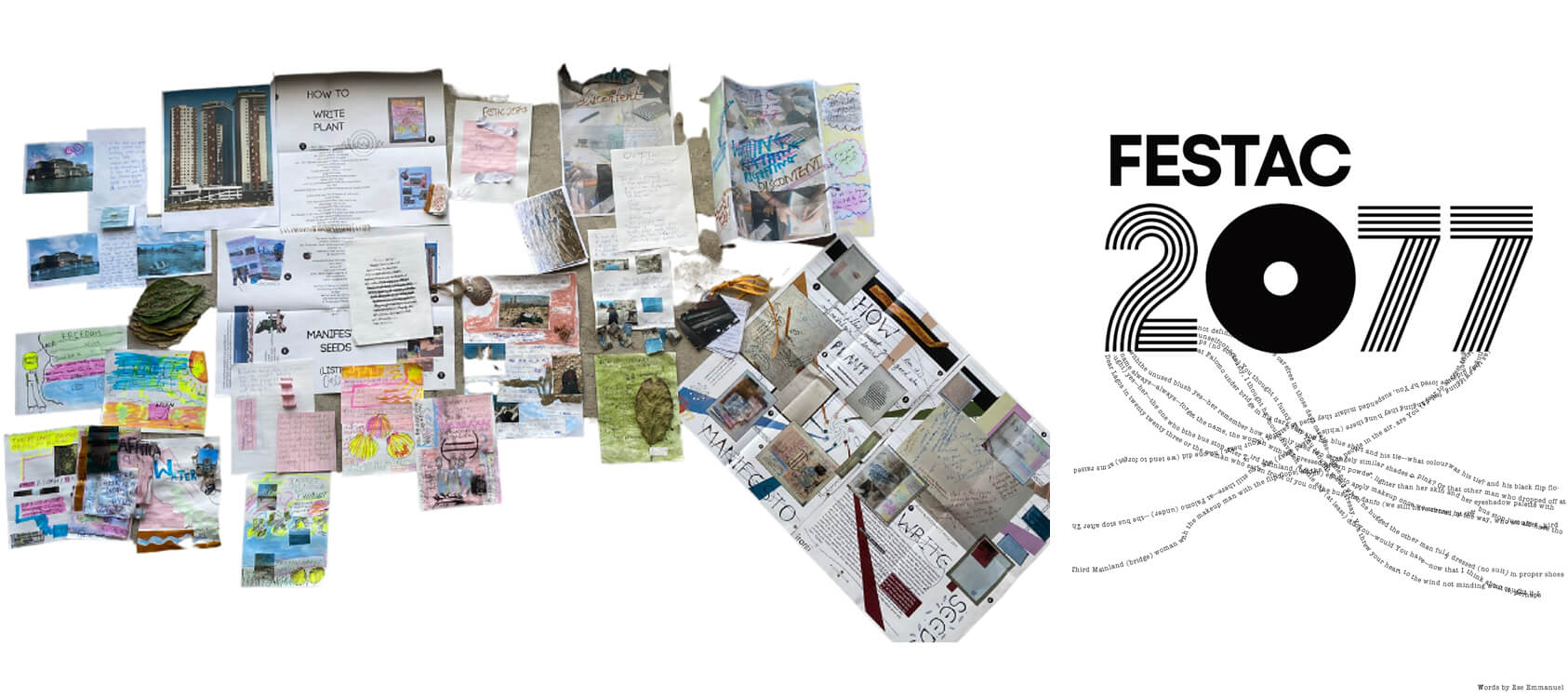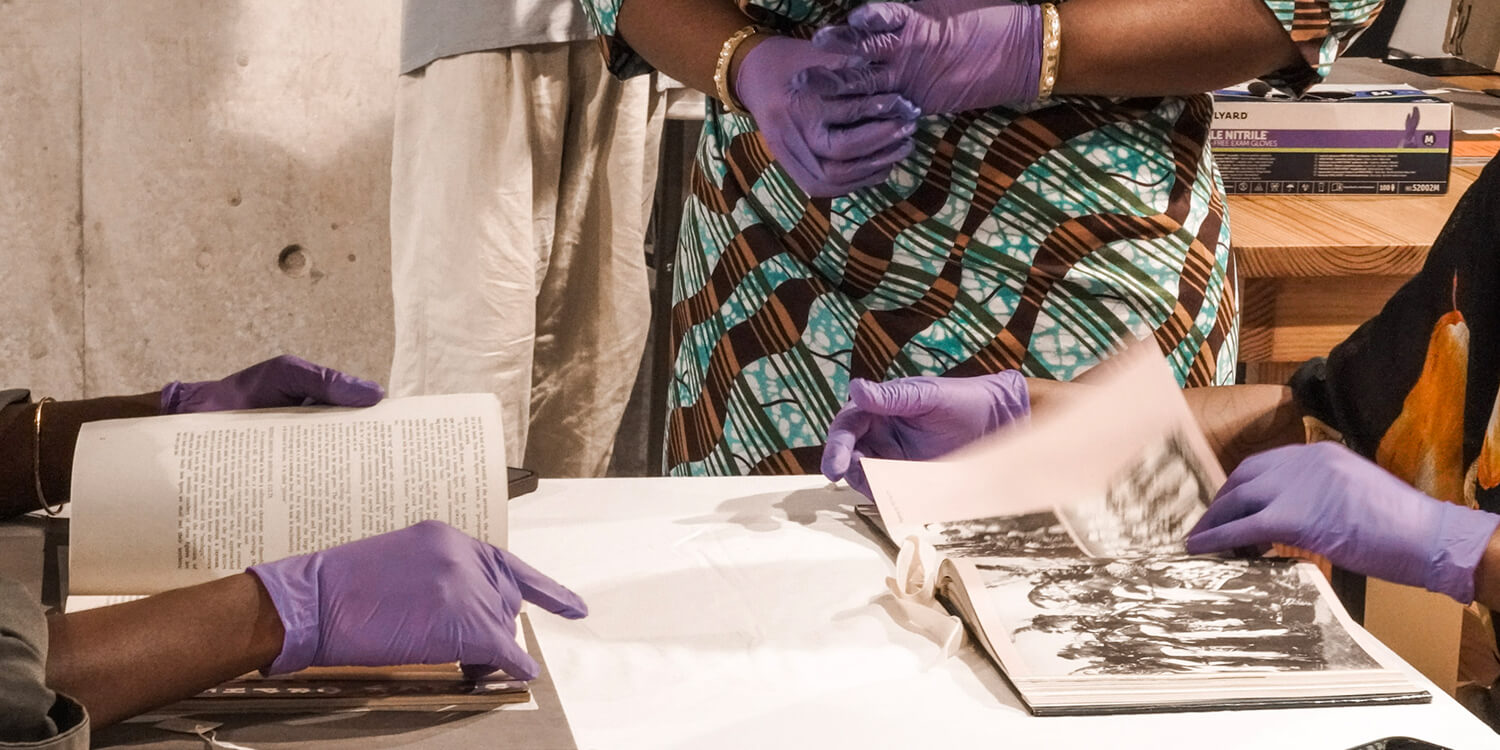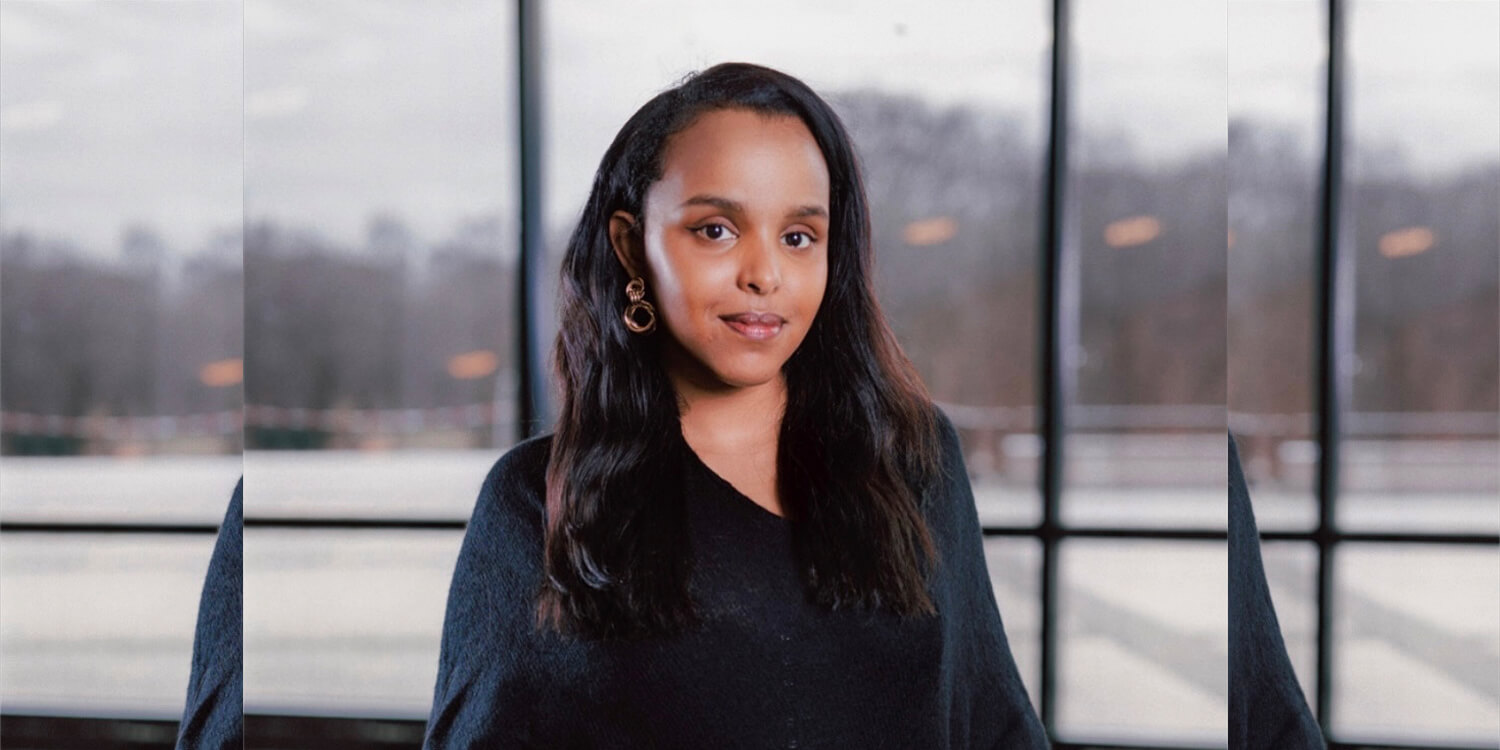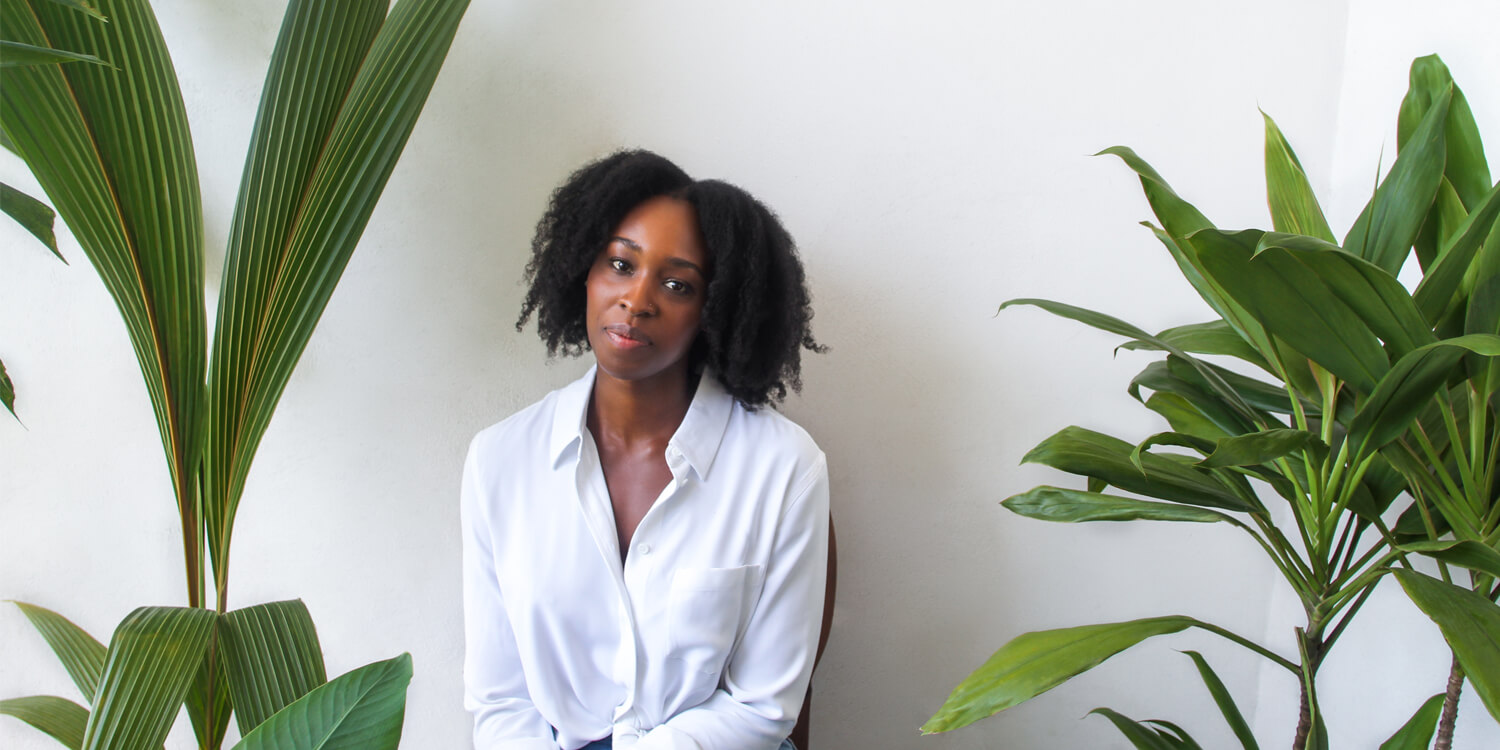Annotations is a six-month project that explores major African cultural festivals and their dual nature as historic events and repositories of postcolonial pan-African encounters. Led by co-curators Naima Hassan (Interim Picton Archivist) and Maryam Kazeem (iranti press), Annotations will explore the entangled histories of FESMAN, Panaf, Zaire 74, and FESTAC’77 through a pedagogical programme, residency and publication. To coincide with the launch of Annotation, we spoke to curators Naima and Maryam to uncover their collaborative journey and delve into how their shared interests and individual initiatives converged to shape the curatorial vision for the project.
Can you elaborate on how you became involved with the G.A.S. Library and Picton Archive and how it influenced the curatorial vision for Re:assemblages?
Naima Hassan: My work on the Picton Archive began shortly after the collection was donated by John and Sue Picton in 2022. At the time, G.A.S. Foundation had not opened. The personal research library spans several thousand publications, archives and artworks in African contemporary art, anthropology, architecture, sculpture, history and art history, archaeology, photography and beyond. The work began in June 2022 starting with an appraisal visit to the Picton’s home in the West Midlands has taken place in several stages. The curatorial vision for Re:assemblages essentially departs with the question—what to do with this significant collection which is intimately linked with African decolonisation and the emergence of the field of ‘African art’? And as a provocation, how can the stewardship of such a collection within an African artistic residency centre lead to new possibilities for archival research and readership? With a substantial holding of rare African art titles and volumes, including volumes of the Black Orpheus publication, a literary journal founded in 1957 by German expatriate editor and scholar Ulli Beier and a first edition print of the official publication from the FESTAC '77, the collection demands rigorous attention.
Maryam Kazeem: I was introduced to Naima last year in May, during FESTAC 2077’s inaugural writing workshop, a project convened by my experimental publishing exercise, iranti press. Naima had read about the programme online and eventually, we began to discuss our similar interest in the pan-African festivals and how we could potentially collaborate. After Naima shared the curatorial vision for Re:assemblages, she invited me to consider how FESTAC 2077 could be incorporated into the programme. We realized they were two distinct programmes, but there was a general approach and focus on publishing in Naima and Belinda’s vision for Re:assemblages that really spoke to me. Naima and I then began to think collectively about a methodology for a publishing-oriented programme that engaged with the Picton archive and the twentieth-century pan-African festivals.
.jpg?ver=GkHNUDbRhrq5OLvnqlsz1w%3d%3d) G.A.S. Library and Picton Archive. Photographer: Andrew Esiebo.
G.A.S. Library and Picton Archive. Photographer: Andrew Esiebo.
What inspired the focus on pan-African cultural festival archives for the Annotations programme?
NH: I developed the conceptual framework for the Re:assemblages and subsequent Annotations programme in dialogue with multiple interlocutors, partners, and collaborators and in close collaboration with Belinda Holden, CEO of Yinka Shonibare Foundation. Our thematic focus on pan-African cultural festival archives for the Annotations programme developed as a direct outcome of a preliminary project I developed with Billy Fowo in September-October 2023, which focused on inventorying dispersed archives and ephemera associated with the two major Pan-African festivals, FESMAN and FESTAC’77. The project aimed to activate a series of questions about the importance of multilingualism and translation in efforts to connect performance-based archives. It also aimed to map archives and literary publications anchored by the festivals, with a focus on movements, schools and artists clubs including the Mbari Club, Négritude, Pan-Africanism, and Afro-Surrealism. The project was supported by G.A.S. Foundation in association with TheMuseumsLab Alumni Projects (2023) with financing by the German Federal Ministry for Economic Cooperation and Development (BMZ) through a collaboration between GIZ and Goethe-Institut.
Four central partners we started a dialogue with last year will contribute to the programme. I am delighted to be joined by Maryam Kazeem as a co-curator of the programme, mentors Archival Consciousness initiated by Mariana Lanari and Remco van Bladel, Rufus Nwoko and Dr. Olatunde Barber in facilitating and hosting the Associate's Programme.
 (L) Writing, drawings, and creations from workshop participants during the FESTAC 2077 Manifesto Seeds Workshop (Lagos, May 2023). (R) Print poster, dear lagos in twenty-twenty three, iranti press.
(L) Writing, drawings, and creations from workshop participants during the FESTAC 2077 Manifesto Seeds Workshop (Lagos, May 2023). (R) Print poster, dear lagos in twenty-twenty three, iranti press.
How do you feel the project challenges and redefines traditional publishing practices?
NH: Introducing a new library collection of African art (broadly defined) to a public audience has already invited local and international interest from writers, artists and researchers. We envision the project to invite emergent and established publishers and bookmakers based in Lagos and further fields to utilise our materials to experiment with the production of printed matter and publications. Working with the concept of ‘live archiving’, the project redefines publishing practices as it utilises a physical repository (G.A.S. Library and Picton Collection) as an encounter zone for publishing processes. The programme we develop will also result in a print publication featuring essays, outcomes, dialogues and impressions of the first programme year. Expanding the notion of publishing beyond the material realm, the publication will be activated within the context of a Study Day held at G.A.S. Foundation in November 2024,
MK: My creative practice has always been very interested in publishing as a place for play and experimentation. With this programme, Naima and I consider FESTAC 1977 and the other twentieth-century festivals as a sort of text. The ‘annotations method’ seeks to challenge what we understand as text, and how that lends itself to uncovering novel approaches to publishing, particularly how text (is) and can be reassembled collectively. This is particularly significant for African arts publishers on the continent, which represent a small but growing ecosystem, reliant on collaboration and experimentation.
 Art and Culture Study Group participants exploring material from the G.A.S. Library and Picton Archive.
Art and Culture Study Group participants exploring material from the G.A.S. Library and Picton Archive.
How do you plan to engage local communities in Lagos and further afield across the continent?
NH: Annotations and Re:assemblages will test a hybrid model for engaging local communities in Lagos, and beyond. This also materialises in our curatorial positions—Maryam will develop the programme largely on the ground in Lagos, whereas I will facilitate its digital components.
MK: The Annotations programme is very mobile and takes place in a lot of different locations in Lagos. It is deeply tethered to the archives that exist within the city at an institutional level, as well as at an individual level. As the programme proceeds, we’re most excited about constructing the text of the 20th-century festivals alongside and with the city. Even though the physical programme takes place in Lagos, we’re also conducting digital field research which extends outside of Nigeria to the wider continent and diaspora. As noted by Stuart Hall in “Constituting an Archive”, “Archives are not inert historical collections. They always stand in active, dialogic relation to the questions which the present puts to the past; and the present always puts its questions differently from one generation to another.” The twentieth-century festivals and their legacies cannot be contained to one moment, or city, or country, they continue to function as sites of exchange through a pan-African vision of the diaspora. With Annotations, we hold this close to our curatorial intentions and methodology.
ABOUT THE CURATORS

Naima Hassan is a researcher and curator, who works primarily with archives. Since 2022, she has led the development of the G.A.S. Library and Picton Archive at G.A.S. Foundation Lagos as Associate Curator and Archivist. Under the foundation’s multi-year programme Re:assemblages, she aims to connect the collections to a transnational network of communities, artists, scholars, and institutions. With an interest in building infrastructures for research on African cultural collections, Hassan is a member of TheMuseumsLab's Steering Committee and Nieuwe Instituut's Indian Ocean Working Group.

Maryam Kazeem is a writer, and the founder of iranti press, a publishing project based in Lagos, which convenes FESTAC 2077: A Speculative Writing Exercise. She has a BA in African Studies from Northwestern University and an MSc in Gender from the London School of Economics and Political Science. She completed her MFA in Creative Writing at the California Institute of the Arts as a Truman Capote Fellow where she also taught courses in Black cultural and performance studies as a Teaching Fellow for the School of Critical Studies. Her creative work makes connections between abstraction, archival research, and the materiality of language and has appeared in platforms including Criterion, Literary Hub, Catapult, Another Gaze, Apogee, and Joyland amongst others. Her writing has been nominated for The Best of the Net, and she is a recipient of a Prince Claus Seed Award (2024).
www.irantipress.com
Supported by Outset Contemporary Art Fund and Yinka Shonibare Foundation.

